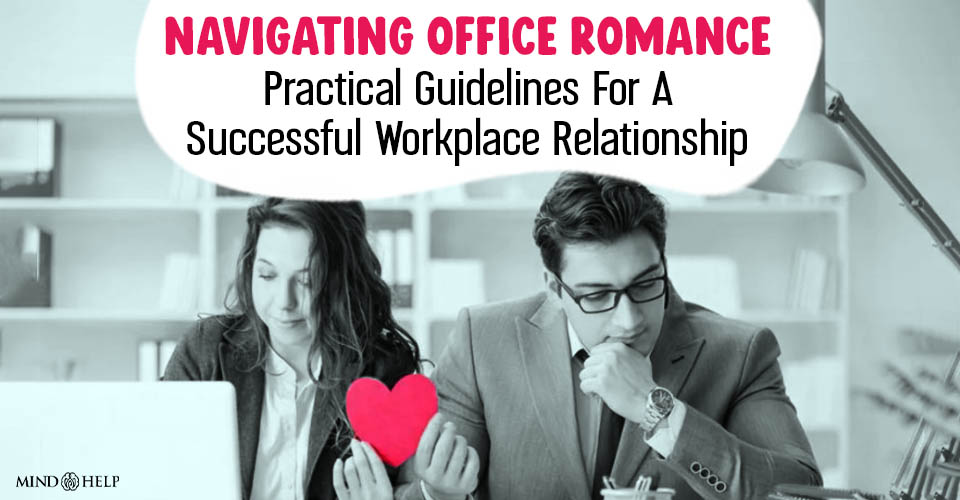In recent times, workplace romance has re-emerged as a subject of debate, especially in light of publicized corporate scandals. While romantic relationships in the workplace are often viewed with skepticism, the emotional dynamics of shared professional spaces make such connections almost inevitable. As organizations grapple with evolving norms and employee boundaries, the psychology behind office romance warrants close examination.
Spending long hours in proximity, navigating workplace stressors together, and observing colleagues in action—whether handling crises or demonstrating competence—can naturally lead to emotional or romantic attachments. However, the challenges of maintaining such relationships within a professional framework are numerous. Concerns over favoritism, team cohesion, performance perception, and the risk of reputational damage add complexity to office romance.
So, can romantic relationships in the workplace succeed? The answer depends on how such relationships are approached and managed. A recent study involving over 1,000 U.S. professionals revealed that 16% had dated a coworker within the past year, and more than half had done so at some point in their careers. While 53% cited emotional connection as their primary motivation, a notable percentage admitted to motives driven by thrill, career advancement, or job security.
Given this data, both employees and organizations must approach workplace romance with maturity, clear communication, and policy awareness. Below are ten evidence-informed strategies to support a healthy and sustainable romantic relationship in the workplace.
Read: C-PTSD And Relationships: Healing Childhood Trauma To Build Healthier Love
10 Professional Tips to Sustain a Romantic Relationship in the Workplace
1. Understand Company Policy on Workplace Romance
Before dating a coworker, consult your organization’s employee handbook or human resources department to understand formal policies. While some companies prohibit romantic relationships entirely, others may allow them with disclosure, particularly if power imbalances exist (e.g., supervisor-subordinate dynamics). Awareness of these rules is vital for ethical compliance and long-term professional security.
2. Maintain Professional Boundaries in Public
Avoid public displays of affection (PDA) or conflict in professional settings. Such behaviors may disrupt the work environment, attract gossip, or cause discomfort among peers. Professionalism, even in the context of personal involvement, must remain intact during office hours to ensure mutual respect and job focus.
3. Obtain Explicit Consent Before Initiating a Relationship
Consent is non-negotiable in any relationship. Even if mutual interest seems apparent, seek clear and unambiguous permission before initiating any physical or emotional intimacy. Tools such as digital consent apps (e.g., uConsent or LegalFling) are available to help document and reinforce voluntary engagement.
4. Accept Rejection Gracefully
If a colleague declines a romantic proposal, respect their decision and refrain from further pursuit. Continuing to express interest after refusal may be construed as harassment and can lead to serious professional and legal consequences.
5. Avoid Serial Dating Within the Workplace
Repeatedly initiating romantic relationships with coworkers may create reputational challenges and undermine professional credibility. If a previous relationship has ended, allow sufficient time for emotional closure before considering another workplace partnership—if at all.
6. Disclose the Relationship Transparently
When possible and permitted by company policy, inform management or human resources of your work romance. While discretion is natural, transparency helps protect all parties in case of conflict, perceptions of favoritism, or allegations of misconduct. Disclosure can also create an environment where proactive support systems are accessible.
7. Navigate Power Dynamics Ethically
Dating at the workplace is tricky. Moreover, relationships involving hierarchical differences require extra sensitivity. If you are in a position of power, ensure your partner’s consent is truly voluntary, and that no professional benefits are directly or indirectly tied to your relationship. Similarly, junior employees should be prepared to address assumptions that their professional progress is only connected to personal involvement.
8. Plan for Potential Breakups
Although it may seem unromantic, discussing the possibility of a future breakup and establishing guidelines for continued collaboration is both mature and necessary. Consider the implications of continuing to work together or being on the same team after the relationship ends. This forethought can help minimize emotional fallout and preserve workplace harmony.
9. Use Personal Channels for Private Conversations
Avoid using workplace communication tools (e.g., email, Slack) for personal interactions. Most organizations monitor official communication channels, and blurred boundaries may violate internal policies. Keeping professional and personal discussions separate reflects maturity and discretion.
10. Do Not Engage in Extramarital Affairs at Work
If either party is already in a committed relationship, engaging in a workplace affair carries serious personal and professional risks. Beyond ethical concerns, such entanglements can breed a toxic environment for coworkers, damage team morale, and lead to disciplinary action.
Pros and Cons of Office Romance: Psychological Reflections
According to the Society for Human Resource Management (SHRM), many managers report that romantic relationships in the workplace can enhance team dynamics under the right conditions. However, the drawbacks are equally significant and must not be overlooked.
Benefits:
- Increased job satisfaction and emotional support
- Improved collaboration and workplace morale among partners
- Enhanced motivation stemming from shared goals
Drawbacks:
- Potential for conflict of interest and ethical violations
- Disruption of team cohesion in the event of breakups
- Emotional distraction, leading to decreased productivity
- Risk of sexual harassment allegations or misuse of authority
Final Thoughts: Love and Boundaries
Whether one views workplace romance as a natural consequence of human connection or a risk-laden endeavor, it is clear that emotional attachments at work are a reality. However, engaging in an office romance should never be impulsive or without consideration of the broader psychological and professional context.
Relationships founded on mutual respect, ethical boundaries, and clear communication can indeed thrive—even in professional settings. But such success depends on emotional maturity, accountability, and strategic foresight. In short, while love may blossom in the workplace, it flourishes only when guided by responsibility, respect, and resilience.







